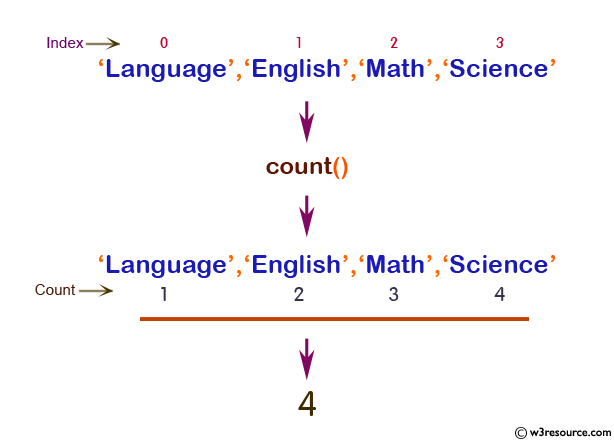PHP: count() function
PHP: Count all elements in an array
The count() function is used to count the elements of an array or the properties of an object.
Note: For objects, if you have SPL installed, you can hook into count() by implementing interface Countable. The interface has exactly one method, Countable::count(), which returns the return value for the count() function.
Version:
(PHP 4 and above)
Syntax:
count(array_name, mode)
Parameters:
| Name | Description | Required / Optional |
Type |
|---|---|---|---|
| array_name | Specifies the array or object to count. | Required | Array |
| mode | Sets the mode of the function. Possible values : COUNT_RECURSIVE (or 1) : here the count() function counts the array recursively. This is useful for counting all the elements of a multidimensional array. The default value is 0. |
Optional | Integer |
Return value:
The number of elements in array_name.
Value Type: Array.
Note: The count() function may return 0 for a variable which is not set, but it may also return 0 for a variable that has been initialized with an empty array.
The isset() function should be used to test whether a variable is set or not.
Example :
<?php
$a[0] = 'Language';
$a[1] = 'English';
$a[2] = 'Math';
$a[3] = 'Science';
$result = count($a);
echo $result;
?>
Output:
4
Pictorial Presentation:

View the example in the browser
Practice here online :
See also
